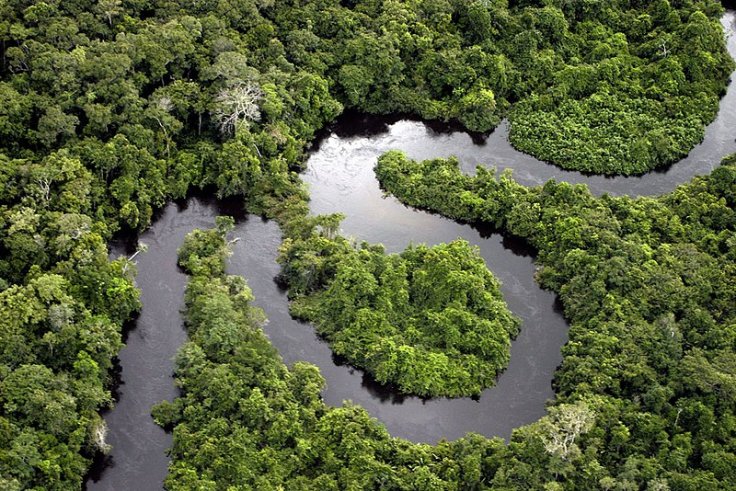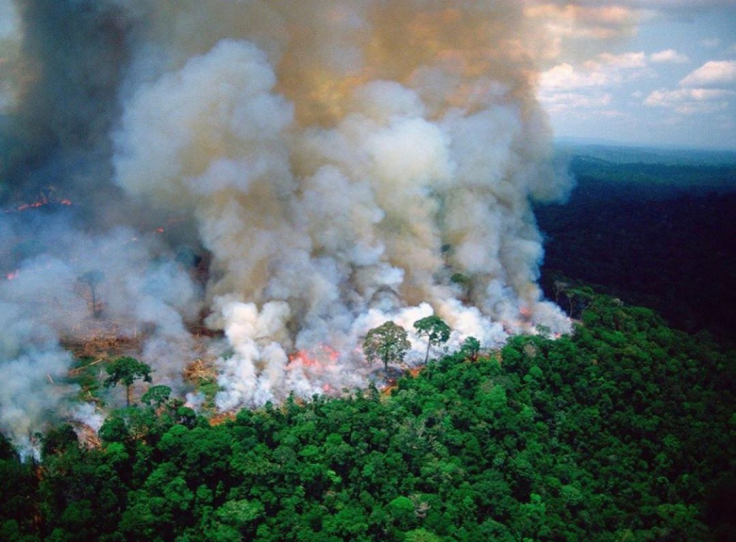The Amazon rainforest has suffered devastating fires in the last two years, leading to the destruction of over 900,000 hectares of vegetation. In addition, humans have whitewashed another 1,202 square km (464 square miles) of forest in Brazil during the first few months of 2020. But as per a new report, the situation would be worse in the coming years and the lungs of this blue planet, Amazon rain forest, will be destroyed by 2064.
In the report for Environment: Science and Policy for Sustainable Development geologist Robert Toovey Walker from the University of Florida summarized that due to deforestation and prolonged droughts from climate change, almost 2.3 million square miles of rainforest will be wiped within the next few decades.
The expert noted that the largest tropical forest on Earth will transform drastically over the next few decades. It will turn from a dense, moisture-filled forest to open savannah, dominated by flammable grasses and shrubs. "Southern Amazonia can expect to reach a tipping point sometime before 2064 at the current rate of dry-season lengthening," he wrote.
The Future of Amazon

In the report—"Collision Course: Development Pushes Amazonia Toward Its Tipping Point"—Prof Walker explained that once 30-50 percent deforestation is reached in the south American region, the rainfall will decrease by up to 40 percent in the west, causing a drastic change in the environment.
According to the geologist, the forest, which he has described as a pump, recycles the moisture that supports regional rainfall. "If you continue to destroy the forest, the rainfall amount drops... and eventually, you wreck the pump," said Prof Walker.
He estimated that if such a devastating situation occurs in the next few decades, the water security will evaporate for over 35 million local residents of the region and more plants, as well as animals, will be driven to extinction. "The people there, they don't worry so much about biodiversity, the environment, when they have to worry about eating their next meal," he added.
Destruction of Forest
There is evidence that deforestation affects regional climate by reducing precipitation and by expanding the dry season. But it is quite clear that the Brazilian President Jair Bolsonaro really doesn't care at all about the environmental threat. When in 2020 the Amazon was burning, he denied the existence of fires in the rainforest initially, calling it a "lie", despite data produced by his own government showed that thousands of fires were surging across the region.

Prof Walker said that the environmental advocacy in Brazil and all around the world was strong in the 1980s and 1990s but it has collapsed since then. "The upshot is that the deforestation rate has begun to rise, if slowly, after reaching its historic low point in 2012," said the geologist. He also noted that the Brazilian government "appears intent on scrapping all remaining restraints on the unfettered exploitation of Amazonia's natural resources."
According to Prof Walker, other South American countries, specifically Ecuador with its vast hydrocarbon stores, are following Bolsonaro's lead in opening Amazonia to resource extraction
Trade deals with the US and potentially with the European Union have created irresistible incentives for massive agriculture in Brazil. Sônia Guajajara, a representative of 300 Brazilian Indigenous People's groups said that the government wants to hand over territories to large-scale agriculture.
"Not only do they have a policy of not granting us rights to our land, but it is also worse - they are trying to take away land we already have the rights to. Whereas before there were violent land conflicts, now it is incited by the hate speech coming from the federal government. Every day they incite violence. People think they have the right to kill with impunity," said Guajajara.
According to another report, published last year, plot inventories from the Amazon showed a declining rate of carbon sequestration. The report also added that "there is growing evidence that further deforestation and degradation of the feedback between moisture formation and vegetation coverage may lead to a system-wide tipping point as soon as 2021".
Amazon has survived warmer conditions, but the human-made issues are making the situation worse. Apart from Amazon, there are other parts of the world where the ecosystem is struggling but we are not doing enough to stop the collapse.









